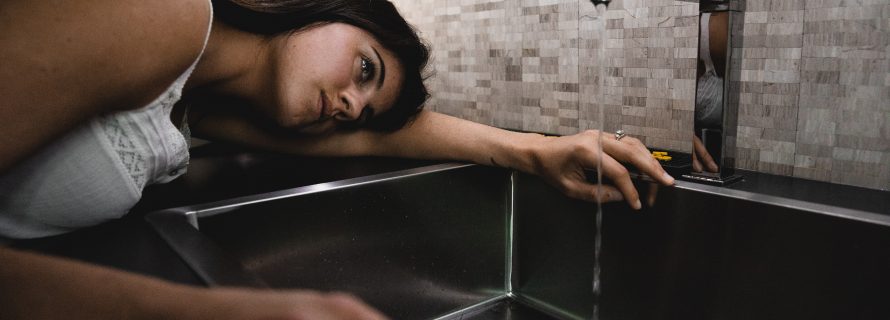The Hazardous Downsides of Using Chemical Drain Cleaners

Here’s something many people are guilty of: using chemical drain cleaners to remove clogs in the shower or sinks. At first glance, this can seem smart and practical. However, nothing can be farther from the truth.
The Lowdown on Chemical Drain Cleaners
This might not be common knowledge but chemical drain cleaners can do more harm than good. Chemical drain cleaners come in various forms including gel, foam, crystal, liquid, and powder.
However, they work pretty much the same way. When poured down the sink, the chemicals will react to the clog and the chemical reaction will generate heat. The heat will then dissolve the clog so it slides down the drain.
Unfortunately, the heat generated won’t affect the clog alone. It can also have an undesirable effect on the pipes. This is especially true if the pipes are made of old metal or plastic. While the impact is not serious enough to merit biohazard remediation, it can still pose a few significant risks that can’t be ignored.
The Hazardous Drawbacks of Using Chemical Drain Cleaners
Health Hazards
Even if you use chemical drain cleaners with extreme caution, there’s always a possibility they can end up spilling into other areas aside from the drain. When this happens, it can have serious health implications.
For starters, the chemicals that can dissolve stubborn clogs in just a matter of minutes can also burn the skin as soon as it comes into contact with it. It is also important to remember that these chemical drain cleaners have high toxicity levels.
In addition, exposure to the fumes can also end up stinging the throat, eyes, and nose. Also, even if the cleaner is no longer used, the fumes can still linger and might cause other health issues later on.
Corrosion
Chemicals in drain cleaners are designed to be strong enough to cut through grease, hair, and many more. However, one of their most obvious downsides is they can be corrosive and can damage your pipes.
The importance of pipes in the home cannot be overstated. Pipes are designed to drain wastewater from the home and into the septic or sewer system. That being said, it is crucial to keep them in top shape at all times. Unfortunately, chemical drain cleaners can harm your piping significantly when used for prolonged periods.
In addition, even if they have been flushed down, remnants can still remain in the pipes and sit there. When they eat away at the pipes, you can end up with a bigger problem than what you started with.
Ruins Fixtures
Using a chemical drain cleaner is not a practical option when you have spent a fortune on elegant fixtures like faucets and taps. When you accidentally spill the chemical drain cleaners on your fixtures, you can end up damaging them.
Drain cleaners are made up of various types of chemicals that are meant to eat through clogs and blockages. One of the ingredients common in chemical drain cleaners is hydrochloric acid, a chemical that can destroy most things it comes in contact with.
Environmental Hazard
Many people use chemical drain cleaners because they have had success with them in the past. However, you won’t be as inclined to use them once you discover what they can do to the environment.
While most of the drain cleaner will go down the drain, somewhere down the line, it can end up in the ground. When this happens, there is a huge possibility that they can penetrate the soil as well as people’s water supplies. It is also possible for them to make their way to ponds and oceans and cause serious damage to marine life.
Inefficient
When the drain gets clogged, many people use chemical drain cleaners as a first resort. While they do work on many occasions, there are instances when they are not as effective. This is especially true if the clog is substantial enough that the cleaner won’t be able to dissolve it.
In similar scenarios, the chemical drain cleaner can just sit in your pipe and cause damage from the inside out. In other cases, a blockage can be caused by a broken pipe or a faulty sewer line. That being said, a chemical drain cleaner will not be able to help at all.
Conclusion
While chemical drain cleaners are considered good for occasional use, the downsides often outweigh the benefits. In line with this, consider it best to have a professional take care of any clogs for you. This is important so you are able to protect yourself and your fixtures from any risky exposure.
About the Author: Rachel Anderson is the Content Marketing Strategist of Arizona Fire & Water Restoration, Inc., a Phoenix-based company that provides water, fire, and smoke damage restoration as well as mold remediation and removal services. When not writing, she plays bowling and goes on trail hikes with her friends.
Photo by Alex Iby on Unsplash
- Additions and New Construction
- All Exteriors
- Alterations
- Basements
- Bathrooms
- Customer Service
- Customer Stories
- Decks
- Design & Planning Show
- DIY
- Doors
- Educational Resources
- Extreme Makeover Home Edition
- Fashion Show
- General Remodeling
- Green Living
- Handyman Home Services
- Home Decor
- Home Entertainment
- Home Improvement
- Home Improvements
- How to Tips
- In The Community
- Kitchens
- Off-the-Wall Remodeling Stories
- Remodeling
- Resources
- Roofing
- Siding
- Social Media
- Sunrooms
- Tips & Tricks
- Trends
- Windows

